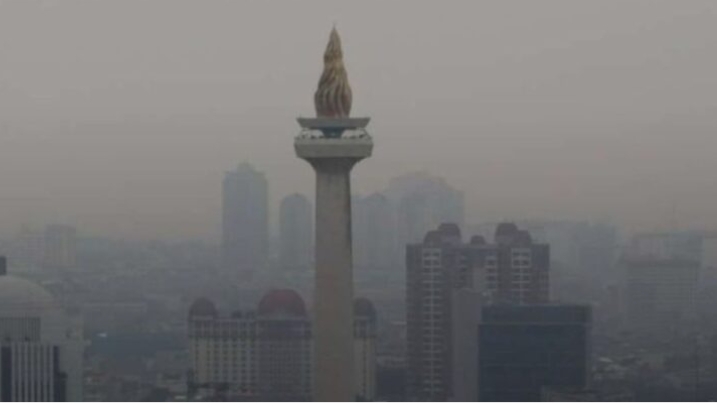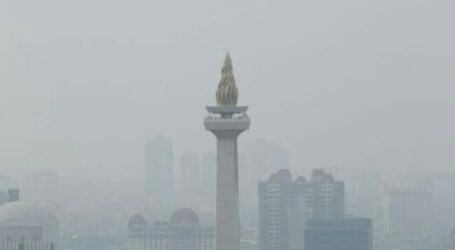Ministry of Health Forms a Special Team to Detect the Impact of Air Pollution in Jakarta

Jakarta, MINA – The Ministry of Health will immediately form a special team to follow up on the massive increase in disease cases related to high air pollution in the Greater Jakarta area.
The Ministry of Health previously found facts that there had been an increase in cases of Acute Respiratory Infection (ARI) in the Jakarta, Bogor, Depok, Tangerang, Bekasi (Jabodetabek) areas, which averaged 200 thousand per month.
“Therefore, in response to this (high cases of diseases caused by pollution), the Ministry of Health has formed a Respirology Committee and the impact of air pollution which has 4 strategic plans, namely detection, reduction of health risks, and adaptation,” said the Chairman of the Committee for Respiratory Disease Control and Impacts Air Pollution for Health Ministry of Health Agus Dwi Susanto in a press conference, Jakarta, Monday, as quoted from CNN Indonesia.
Regarding detection, Agus said that his party would help monitor air quality, one of which is by installing air pollution sensors.
He said the Indonesian Ministry of Health is trying to help install air sensors in a number of areas in Indonesia, especially in hospitals, health centers, schools and markets.
“In the DKI (Jakarta) area, in particular, installations will be carried out at health centers or hospitals as an effort to assist other ministries in efforts to detect air pollution,” he said.
The installation of air sensors will be carried out in areas with high levels of PM 2.5, including in hospitals, health centers, schools and markets.
PM 2.5 are airborne particles that are smaller than or equal to 2.5 µm (micrometer). Sources of PM 2.5 include dust, soot, dirt, and pollen.
However, in the press conference, Agus did not explain when and where the air quality sensors will be installed. However, he said that not only in the Greater Jakarta area, the installation of air sensors is targeted to be carried out in 18 cities in 11 provinces in Indonesia.
Integrated early warning system
Agus said that regarding health issues due to air pollution, the team formed by the Ministry of Health will develop an integrated early warning system.
“Most of the pollutant data will come from the relevant ministries and also from the Ministry of Health. It will be integrated into one health system, people can immediately be warned that the current conditions are unhealthy, what should be done,” he said.
Agus also said daily, monthly and yearly air quality monitoring through indoor and outdoor air quality sensors is also a form of strategy to improve air quality and manage health impacts due to pollution.
“We have collected ISPA data at the hospital, then at the puskesmas on a regular basis. Now we will prepare it so periodically when air pollution is high, so we can see what the conditions are like so that efforts to manage it in each health facility (health facility) ) can be supported,” he continued. (T/RE1/P2)
Mi’raj News Agency (MINA)





